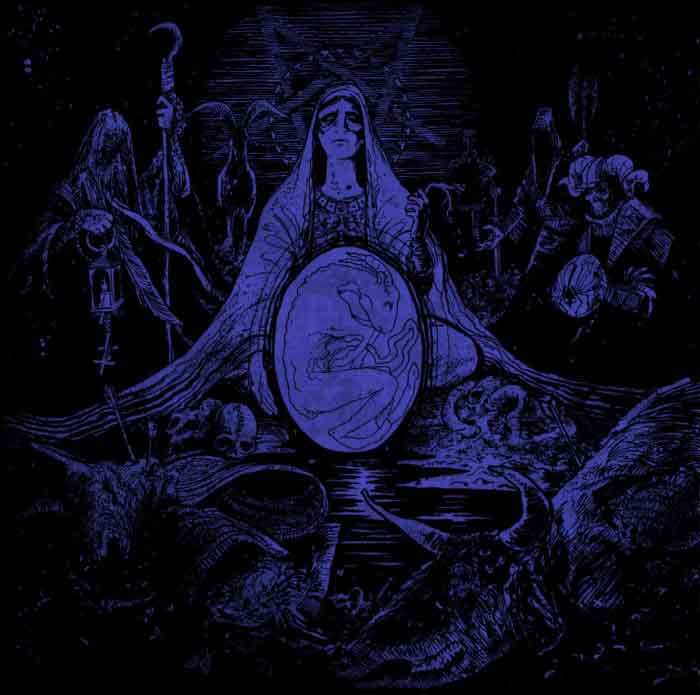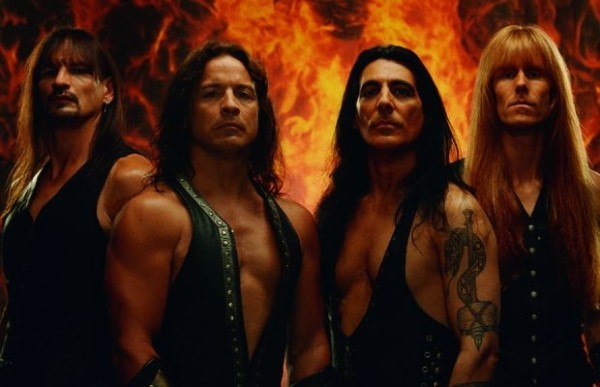
The problem with dreams is that when they are achieved, the dream is no more. Life is about the chase, not the catch. This doubly applies to metal once it got social acceptance.
During the 1980s and 1990s in everywhere but Scandinavia, to be metal was to identify yourself as a kind of social reject. It was equal parts nerdly and menacingly rootless at a time when stable suburban living and office jobs were the only acceptable future.
Sometime in the late 1990s however metal was discovered as a form of natural resource. This resource is not renewable and hard to locate. It is hipness: a combination of authenticity, rebellion, transgression and the kind of personality that makes a character in a novel appealing.
At that point metal exploded. TV shows used its iconography, the media reported on it, and “kinder, gentler” forms of metal were produced for the audience that resulted. During this time, metalcore, post-metal/emo, indie-metal, alternative metal and atmospheric metal went ballistic.
The problem for us at this very moment, as Keith Kahn-Harris pointed out, is that we’re still drowning in an abundance of heavy metal. There are too many bands for fans to make meaningful choices. There are too many big blogs and news sites reporting the same news. All of us are drowning in digital downloads.
As Brian Pattison of Glorious Times opined in an interview:
The internet has made some things easier and perhaps better, but it has also done a lot of damage. Almost all of the personal relationships that happened back in the day don’t happen now. Kids today will visit a myspace page and download songs so they don’t get to build relationships with bands like we did way back before the internet. I still have letters from bands from back then, will kids today save their emails and myspace messages to look back upon in 20 years — I don’t think so.
In other words, convenience makes a product out of the music. With ease comes insincerity and disposability. Kevin Ord, editor of Codex Obscurum, points to the advantages of physical media in eliminating this problem:
I like to be able to hold something physical. I think a lot of people do. I want something that a kid might find in a shoebox in 10 years and say “I remember this; I’m going to reread it.” Stuff like blogs just seem so disposable.
As predicted here before, underground metal is turning back toward physicality to avoid the information overload of the digital age.
Fans and zines are asking themselves variants of this question: What use are 10,000 bands when no one can hear them all, and thus good quality does not get bumped up the line above the rest? A genre dies when it becomes so flooded that it has no quality control. Everyone gets to participate that way, sure, but the lack of leaders means that participation alone soon becomes pointless.
Where this is interesting is the nexus of intersection between metal’s concept of “heavy” and this return to primal methods.
“Heavy” is a beatnik word referring to concepts and knowledge that invoke existential and other concerns. In general, heavy is a confrontation with the dark and final side of life, like death or loss. If socialization and happiness are “light,” heavy is the opposite. In social talk, everyone wins; in heavy talk, it is clear that some win and some lose, including lose their lives to war, disease, violence and cruelty. “Heavy” is everything we fear as individuals and refuse to talk about in polite conversation.
When Black Sabbath emerged in the late 1960s, they distinguished themselves thematically from other bands by being heavy. Everyone else was singing about how the Age of Aquarius was going to bring Enlightenment and peace to everyone; Black Sabbath was singing about the collapse of the world, the failure of hope, and the doom awaiting us all.
In the same way, the Internet boom of the late 1990s was based upon a Utopian vision. Our old worries were over; a new society based on information and knowledge was here! But as the years went on, it became clear that in all areas most of this information was commercial spam or otherwise manipulative, and that the effect of “information liberation” was to drown us in irrelevance.
People crave what the old offered: strong opinions in record reviews and writing, and zines that were willing to push better bands on top of the rest. They want a death of the commercial spam that our media have become, and to be able to pick five winners out of those 10,000 bands to become the basis of the next generation in a genre.
Thus heavy returns. Darkness and evil return. A rejection of peace, harmony, happiness and enlightenment of the new age is replaced with a reliance on primal truths, pagan fears and ancient impulses. Instinct overtakes rationality. Practicality replaces morality. The beast within rises again.
http://www.youtube.com/watch?v=d06wIZ1T3xE
4 CommentsTags: heaviness, heavy, Heavy Metal, metal journalism




